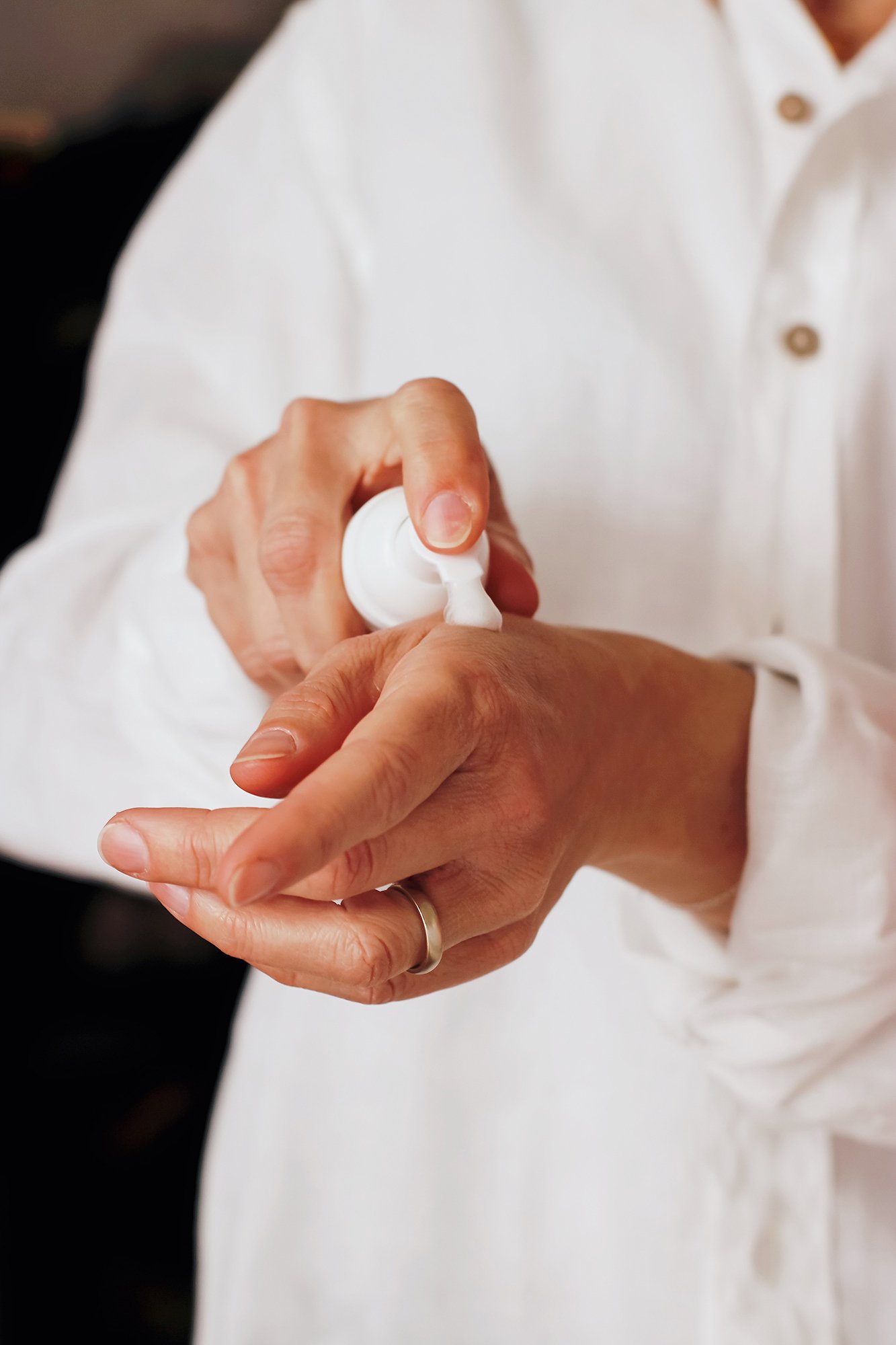Retinol 101
Retinoids is the family name for retinol, retinoic acid and retinyl parmitate. They are the gold standard topical treatment for mature skins and a brilliant all rounder for acne, spots, wrinkles, pigmentation, open pores and rosacea. The active ingredient is vitamin A, which unlike many skincare ingredients has the ability to penetrate through the skin’s surface (stratum corneum) and work at a deeper level. Not only do they improve texture and clarity in the top layers of the skin, they speed up cell turnover in the epidermis and activate collagen production in the dermis. Basically, an all-singing, all-dancing skin superhero.
Side effects
Retinoids can cause shedding, dryness and irritation and should only be applied at night as they increase the skin’s sensitivity to sunlight. If you’re a newbie, use with caution until your skin adapts and be stringent about applying SPF. Retinoids are not advised during pregnancy.
How to use
Beginners should start twice a week using a pea sized amount on clean, dry skin. The goal is to increase frequency so that eventually you’re using retinoids nightly. If your skin reacts badly (some dryness and shedding is to be expected), ease off on frequency and check the amount you’re using. You only need a pea sized blob.
Don’t give up
Think of retinol as a marathon, not a sprint - you need to build up a tolerance and results can take a while (up to six months) but it’s well worth the effort. Often your skin will get worse before it gets better. While your skin is adapting to the new active ingredient, you may experience some irritation and redness. Moisturising half an hour after application can help dial down flare-ups and excessive redness.
Read the label
The higher up the ingredient list, the more retinoid there is in a product.
Retinoic acid tends to be prescription only and the strongest of all the retinoids.
Retinyl Palmitate is the most gentle.
Retinol sits somewhere in the middle.
Retinaldehyde is good for acne.
Try
Beginner: The Ordinary
Proficient: NeoStrata
Advanced: Talk to your GP or a dermatologist about tretinoin
Acne: Differin

